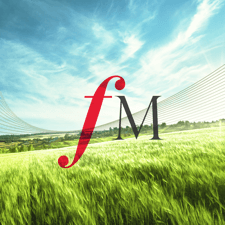What are the lyrics to ‘Baa Baa Black Sheep’, and what is its history?
28 June 2024, 16:22

The popular nursery rhyme has a surprisingly rich history and meaning. Here we chew through the story behind the seemingly simple tune and lyrics.
Listen to this article
‘Baa Baa Black Sheep’ has a fascinating history.
On the surface, it’s a rhythmic, rhyming ditty about a sheep who dispenses three full bags of wool. But it’s believed this nursery rhyme could actually tell of taxes, tolls on colour difference, and tough times.
Let’s chew through the story as we know it.
Read more: 10 best nursery rhymes ever written

BAA BAA BLACK SHEEP Children's Song with Lyrics
What are the origins of the nursery rhyme ‘Baa Baa Black Sheep’?
‘Baa Baa Black Sheep’ is an old nursery rhyme, first found in published form in 1744, but it’s likely to be older than that.
The ‘Baa Baa Black Sheep’ lyrics are sung to a tune that’s a variation of the music used in the 18th century French melody, ‘Ah! vous dirai-je, maman’ (‘Oh! Shall I tell you, Mother’), which is similar to the music for ‘Twinkle, Twinkle Little Star’, and several other nursery rhymes.
The nursery rhyme comes in at 4439 in the Roud Folk Song Index, which catalogues English language folk music passed through history.
It was picked up in Sweden, and translated with slightly altered lyrics and set to a new tune composed by Alice Tegnér, in the late 19th century.
The rhyme remains popular around the world, in spite of a surprisingly colourful history, not devoid of controversy.

What is the meaning behind ‘Baa Baa Black Sheep’?
In ‘Baa Baa Black Sheep’, three full bags of wool are distributed to the narrator’s “master”, a dame, and a little boy who lives down the lane. On the surface it’s a simple tale.
It’s believed the story could go deeper, though, and allude to a mediaeval wool tax that was in existence in England from 1275, up to the 1500s, which demanded shepherds and sheep keepers deliver a third of their wool to the estate of reigning King Edward I, who was short of funds after fighting in the Crusades.
The tax saw the church scooping up another third (the reference to the church being “the dame”), leaving the farmer with the final third. The 1275 tax was a big wealth generator for church and state, and an important part of the fiscal landscape of England at that time.
The lyrics certainly fit closely with this history of taxing and taking by the monarchy and church, something author Katherine Elwes Thomas supported in her book The Real Personages of Mother Goose (1930).
What was the ‘Baa Baa Black Sheep’ controversy?
In the 1980s and 1990s, however, as debates around political correctness and semantics in terminology were swirling, a new light was shone on the meaning and resonance of ‘Baa Baa Black Sheep’. It was linked, mostly by parents of young children, to racial terms and specifically the slave trade, due to the “Black Sheep” lyric.
The nursery rhyme found itself in the middle of the hot debate as institutions began to play with lyrics, swapping the sheep’s “black” wool for “rainbow” and other colour options.
Although when pushed by the media, these choices were explained as vocabulary-widening by some, and dismissed for being “political correctness gone mad” by others, and the idea failed to stand up on four legs, and it’s difficult to find any historical evidence of a racial link.
Some modern takes on the nursery rhyme, including this version by Cocomelon, still opt for putting sheep of several different colours at the centre of the plot.
The wool of the sheep being black as opposed to white, which is more common in many breeds of the animal, could allude to either failure (black wool being less desirable at some time due to difficulty experienced when dying it) in the context of the rhyme, or fortune (in the case that black wool may be more in demand because it lends itself well to producing dark cloth without the need for dying at all).
Some take the meaning of the nursery rhyme to simply represent and teach the joy of sharing, demonstrated by the deliverer of the wool who takes the bags to different corners of the community.

What are the full lyrics for ‘Baa Baa Black Sheep’?
Baa, baa, black sheep,
Have you any wool?
Yes, sir, yes, sir,
Three bags full;
One for my master,
And one for my dame,
and one for the little boy
Who lives down the lane.









































